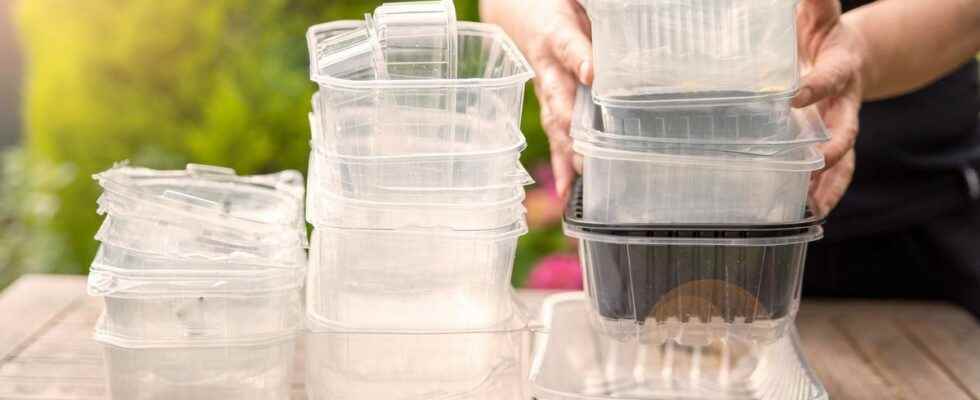Published on
Updated
Reading 2 mins.
In the context of the fight against plastic pollution, more and more brands are promising “biodegradable” and “compostable at home” packaging. But what are these mentions really worth? British researchers conducted the investigation and the results are far from conclusive… Explanations.
Have you got into the habit of carefully selecting plastic packaging that says “compostable” or “biodegradable” when you go shopping? Bad news: this practice is not as eco-responsible as we are led to believe. This is the conclusion of a survey carried out by University College London, published in the journal Frontiers in Sustainability.
Compostable plastics: real ecological efficiency?
“Compostable and biodegradable plastics are growing in popularity, but their environmental characteristics need to be further assessed to determine how they can be part of the solution to the plastic waste crisis.”argue the researchers, who started from this premise to carry out their study.
Based on a citizen science method, this research aimed to survey consumers in order to learn more about their purchasing habits with regard to so-called “biodegradable” and “home compostable” plastic products, their knowledge on how to recycle them properly, as well as the real effectiveness of these packaging. The survey was carried out over a two-year period among 9,700 people across the UK. At the question “are you more likely to buy products that say “compostable” or “biodegradable” on the packaging?“, 85% answered “yes”.
Of the participants, 1,648 actively engaged in a home composting experiment. Only 902 of them went all the way. The experiment in question consisted of examining the contents of the compost after having deposited the packaging (cups, cutlery or even newspaper wrappings) in it, in order to detect traces of plastic. If 90% of the carbon in the materials tested was gone within six months, they were considered compostable. The results show that, on the whole, the decryption of the labels indicating the mentions “compostable” and “biodegradable” remains difficult.
“Despite our best efforts to guide participants to only compost items clearly marked as [compostables à domicile]many items marked as industrially compostable or simply biodegradable, have been introduced“, note the researchers.
Home composting: an ineffective method
The study also suggests that laboratory testing for these materials is not working, which is a wider problem for the plastics industry, and calls into question whether these product standards are actually protecting the environment. “Diversity of microbial communities, catalytic pathways of nutrient transformation, chemical differences of materials cannot be fully controlled and replicated in vitro and therefore standards for home composting may not be reliable”note the authors of the work.
The study researchers concluded that “home composting is not an effective or environmentally beneficial waste treatment method for biodegradable or compostable packaging in the UK. The only solution is to use less plastic”.
